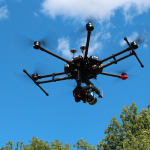Report highlights the profound impact of the pandemic on the world of procurement, with over 50% of companies reporting supply chain disruption
RS Components (RS), a trading brand of Electrocomponents plc (LSE: ECM), a global omni-channel solutions partner for industrial customers and suppliers, has published its 2020 Indirect Procurement Report. ‘The Evolution of MRO Procurement’ explores how the category of maintenance, repair & operations (MRO) is managed. In partnership with The Chartered Institute of Procurement & Supply, this annual report, now in its fourth edition, is the result of a survey conducted among 1001 procurement professionals globally.
Covering the opportunities and pressures procurement professionals have faced this year, and the profound impact of the COVID-19 crisis on the profession, the survey includes global respondents from sectors including manufacturing, public sector, energy, logistics & retail, transport & defence, and technology, covering job functions from operational through to senior and director level. It focuses on how businesses have managed to adapt, evolve and thrive while having to operate within a global pandemic.
The 2020 Indirect Procurement Report highlights include:
- The 2020 survey is a story of contrasts. In some respects, like the continued pressure to reduce budgets and the need to rationalise suppliers, little has changed since 2019. In many other respects, COVID-19 has changed the world of procurement profoundly.
- In light of the disruption caused by the pandemic, this year’s survey asked for the first time about business continuity planning for critical parts. Around four in ten questioned said it was a key strategy in their business, second only to sustainable and ethical procurement.
- Encouragingly, there has been a growth in companies having procurement efficiency strategies in place; 60% vs 51% in 2019.
- The pandemic has driven some companies to innovate more through accelerating digitalisation.
- The biggest day-to-day challenges for respondents remain: delivering annualised savings (51%) and managing stakeholders over multiple sites (45%).
- Those in more senior roles feel they have more opportunity to drive change than those in junior procurement roles (71% vs 61%).
- Despite uncertain economic conditions, the importance of sustainability has not been lost. The number of respondents regarding sustainable and ethical procurement as a priority saw a slight increase from 35% in 2019 to 38% in 2020.
- 50% of UK procurement professionals said their end-users were using their eProcurement system to place orders directly, and another quarter were using procurement cards to monitor spend.
- The challenges are immense, but by harnessing digital technology and using professional skills developed over decades, procurement is proving its role as a vital strategic business function.
Pete Malpas, EMEA President at RS Components, said: “This year’s report offers an excellent insight into everything that has changed or evolved in the world of procurement since our last survey in 2019. Disrupted supply chains, the continued need to reduce costs as the economic impact of the pandemic bites, and the problem of suppliers going out of business have produced significant challenges.
“But, at the same time, the crisis has also increased the importance, and hence the professional standing, of skilled procurement professionals in many organisations. It has proved an opportunity for procurement to show what it can do in the face of a global emergency. Whether it’s dealing with the perennial challenges of driving savings, reducing downtime and managing ageing assets, or facing up to the new challenges of COVID-19, we are proud to be standing with the procurement profession at this extraordinary time,” he added.
Helen Alder, Global Head of Knowledge at CIPS, said: “The report highlights that the impacts of the pandemic have not only resulted in disrupted supply chains but also a focus on what good practice looks like, which has now become a priority. So, there have been positives in the understanding of the importance of good supply chain practice.
“The drive to build closer working relationships is to be welcomed and makes good procurement sense. During a crisis, your key suppliers should remain your allies if you want to be a prioritised customer when the going gets tough. There are many other helpful insights available in the report that every procurement professional should take a look at.”
The 2020 white paper can be found on Connected Thinking https://www.rs-connectedthinking.com/en/insights-1-1/2020-indirect-procurement-report
RS Components launched Connected Thinking in 2016, a website which provides advice and best practice for professionals within the Indirect category of MRO. Connected Thinking features contributors with knowledge on the category, including senior leaders from RS, industry experts and CIPS.





